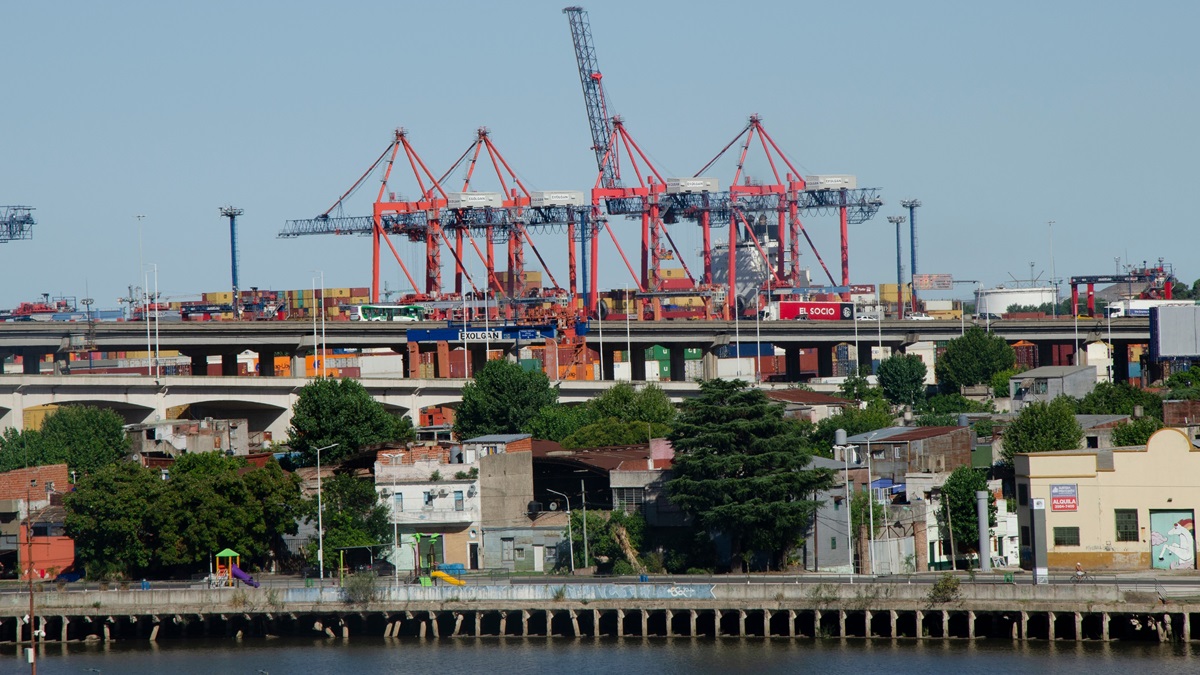Supported by UN Trade and Development, main ports across the country step up efforts to bolster trade, competitiveness and sustainability.

© Shutterstock/Lautaro Soto | The Port of Buenos Aires, Argentina.
Around 80% of international trade in goods is carried by sea, giving ports a crucial role in global production and distribution networks.
Consequently, port management features high on the agenda at the first-ever UN Global Supply Chain Forum currently underway in Barbados through 24 May.
The weeklong forum seeks to tackle, among others, the most pressing issues facing ports worldwide, ranging from building resilient supply chain and leveraging digital technology to advancing environmental sustainability.
The discussions there speak volumes to Marcelo Teper, who works for Argentina’s General Administration of Ports. The organization is represented at the forum, as part of the TrainForTrade port management network, to share country-specific experience.
“A port is not simply a centre for loading and unloading goods, but a key player in the logistics chain that provides services and facilities to streamline import and export process”, Mr. Teper notes.
Argentinian ports in action sustainable development
With support from UN Trade and Development, the Argentinian ports system has set out to implement a range of activities that prioritize 10 of the 17 Sustainable Development Goals, with specific indicators to measure results.
These include training courses on gender equality and empowerment, such as ways to attract and retain women in port management, a profession where men still make up the majority.
Buenos Aires, the principal seaport of Argentina, has put in place a system to monitor operational impact on the environment, as well as sampling sites to measure sedimentation and surface water quality – both key indicators of pollution.
Leveraging innovation and technologies, the port also established a digital inventory to help track and control greenhouse gas emissions, while promoting on-site segregation to optimize waste management in line with sanitary, safety and environmental standards.
Eight-year partnership powering sustainable, competitive ports
Mr. Teper leads the National Port Training Center of Argentina (CENCAPOR), a longstanding partner to the TrainForTrade programme of UN Trade and Development (UNCTAD).
The programme first delivered a modern port management course in Buenos Aires in 2016, helping kick-start broader training and capacity building across the Latin American nation.
So far, CENCAPOR has trained more than 5,000 practitioners working at 13 key ports of Argentina to enhance operation and logistics management.
Besides, the training helped heighten awareness around how ports can be change agents advancing sustainable development, mostly notably through an interactive board game named ”Port Endeavor”, jointly developed by the International Association of Ports and Harbors, the Belgian Port of Antwerp-Bruges, and UN Trade and Development.
Port endeavor everywhere
The TrainForTrade programme is one of the top contenders for the 2023 UN Secretary-General Awards.
“Port Endeavor”, an innovative game developed by the programme, helps practitioners in Argentina and beyond understand how ports can take concrete actions to accelerate progress towards sustainable development.
The multilingual role-playing game puts participants in the shoes of port executives, asking them to formulate decisions to invest in sustainable activities, based on the real-life database of the World Ports Sustainability Program.
The digital game has engaged over 1,600 port professionals globally, turning them into advocates for sustainable development around the world.


